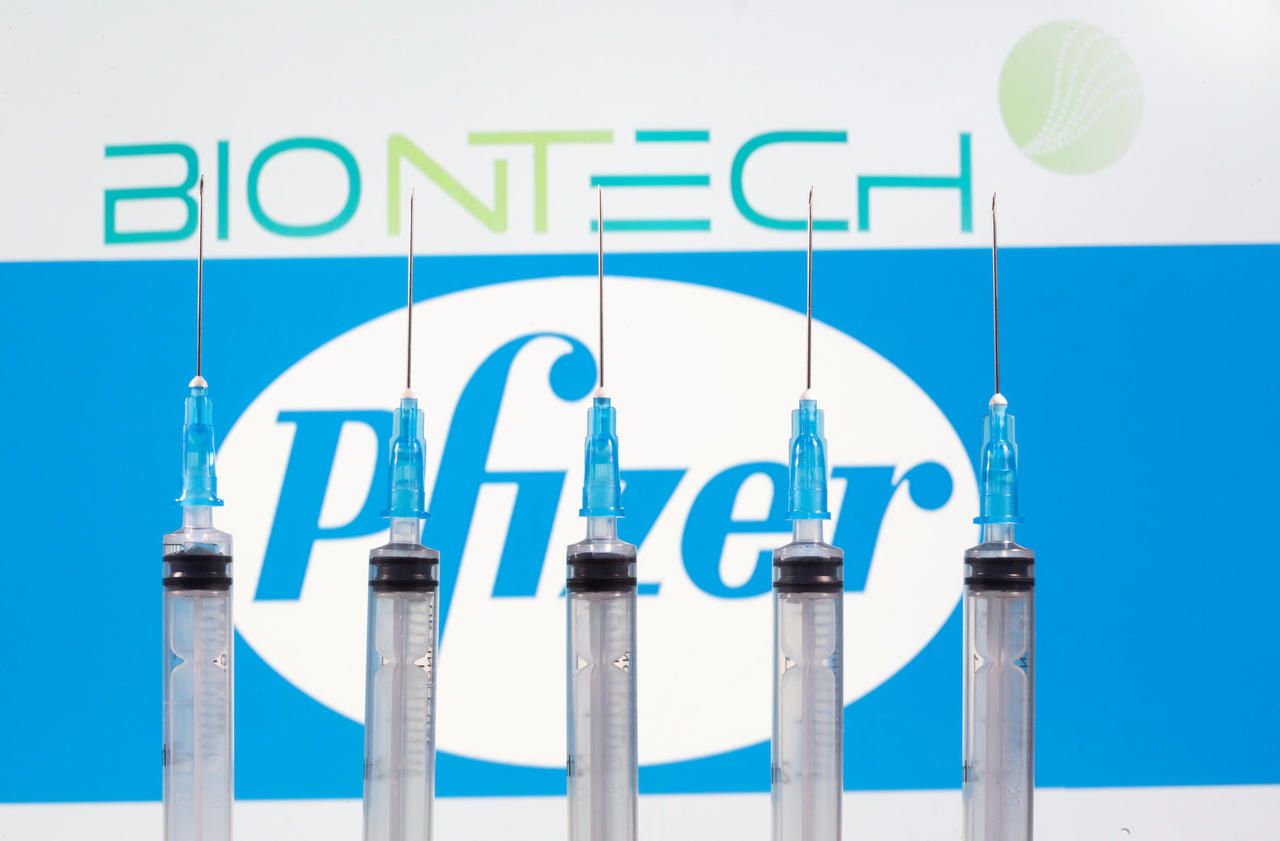The announcement of results, although provisional, on the 90% effectiveness of the Pfizer vaccine against Covid-19 was received very positively.
Despite everything, there are still many steps to pass before the world population can have access to it and several questions still remain.
Why is this vaccine innovative?
The vaccine was developed by the large American laboratory Pfizer, which bought the patent from a German biotech firm, BioNTech.
It uses an innovative technique called “messenger RNA”.
"The principle is to make the human body produce antibodies, directed against the Spike protein, which is the key that allows the virus to enter our cells", explains Professor Jean-Daniel Lelièvre, head of the infectious disease department at the Henri Mondor hospital (AP / HP-Créteil).
Until now, vaccine techniques have used "live attenuated virus" to trigger reactions from our immune system.
Advantage of this new technique: it seems more efficient.
Disadvantage: it has never been used in a vaccine on humans before.
What does “90% effective” mean?
In its press release, the laboratory indicates that its product "was 90% effective in preventing Covid-19".
In detail, what does this mean exactly?
To answer this question, you have to know how the clinical trials are going, and this one in particular.
“In this type of test, carried out with healthy subjects, they are divided into two groups.
One receives a placebo, the other a vaccine.
Then we wait to have 94 cases of people sick with Covid, which corresponds to a bio-statistical model.
Then we compare in the two groups where the patients are.
An efficiency of 90% means that there were 9 times more cases of patients in the placebo group than in the vaccine group, ”explains Jean-Daniel Lelièvre.
"This is a remarkable result, because we are entitled to usually expect an efficiency of 50% in this type of test," he adds.
VIDEO. Vaccine against Covid-19: "Caregivers will have priority" according to an expert
Can it not be finally authorized?
Yes quite.
On the one hand, because these announcements were made in the form of a press release, without a detailed scientific publication being made.
On the other hand, because the observed immunity of individuals was only observed after 28 days, which is a very short time to find out whether the vaccine protects in the long term.
“It will be up to the health authorities, whether it is the FDA in the United States, or the European health agency, to scrupulously verify all the data put forward by the laboratory.
They are not going to give their marketing authorization following these simple announcements.
They will take a close look at all the files.
Everything is possible, even if it is challenged, ”adds Professor Lelièvre.
This step is essential to reassure the populations.
It is estimated that this process will take several months.
How will it be administered?
By injections, under the skin or into a muscle, like other vaccines to which the public is already accustomed.
However, this remedy, which is not a deactivated virus (as for that of the flu) but a genetic material, presents a particular sign: its conservation is subject to compliance with a drastic cold chain, at -70 degrees C Impossible therefore, to keep it in the refrigerator door, to go get stung by his general practitioner, or his pharmacist.
"This can be a brake on the vaccination campaign, because we know that people are less inclined to go to large vaccination centers", notes Mickael Schwarzinger, doctor of public health at Bordeaux University Hospital.
READ ALSO>
Covid-19: would you be ready to get vaccinated?
Are there any side effects?
For now, Pfizer is not talking about it.
But we know that in other clinical trials (including AstraZeneca, and Chinese Sinovac), some side effects have been reported.
Are they likely to call into question the value of the vaccine?
It will be up to the authorities to measure the benefit / risk, knowing that the pandemic has catastrophic consequences for the planet at this time.
“These announcements are an element of optimism.
They mark a milestone.
But these are still intermediate results.
There are caveats.
We must remain cautious, even if this is good news, ”adds Dr. Bruno Boyer,“ Public Health ”manager at the National Council of the Order of Physicians.
Hoping that in the first quarter the validated vaccine will indeed be available to the greatest number.
Which countries have ordered the vaccine?
Many states have taken their ticket, in the queue of laboratories, to acquire the remedy. The United States has pre-ordered 100 million doses from Pfizer, and the distribution of the drug across the Atlantic would only be a matter of “weeks”, according to US Secretary of Health Alex Azar. The European Union, which has signed contracts with several companies, including Sanofi and AstraZeneca, also top for 300 million doses. They could be available "early 2021". The UK has pledged 40 million vaccines. And so on Japan, Canada… What about less fortunate countries? The question worries NGOs. "The vaccine will be 0% effective for people who do not have the means to access it", ironically Robin Guittard, spokesperson for Oxfam France.

